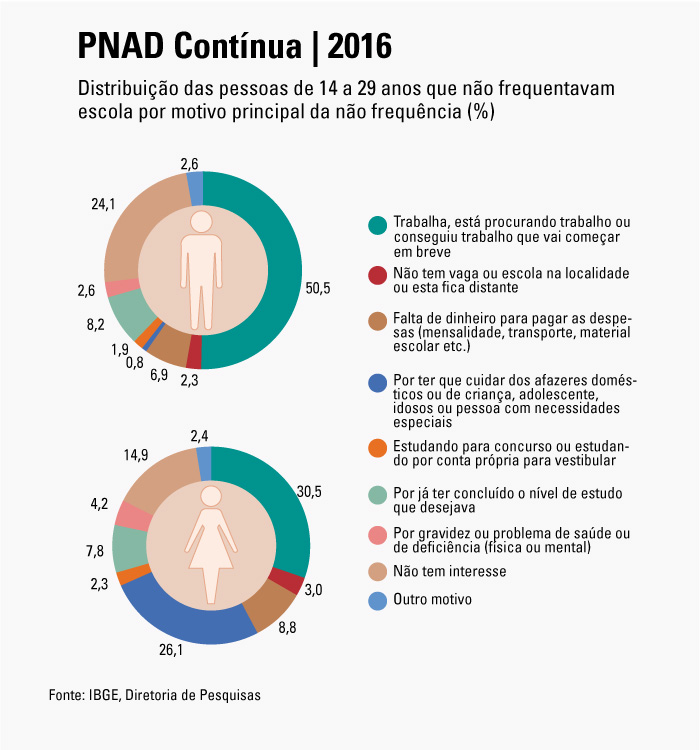Of the young women out of school, 26% claim to take care of the house, of children or elderly persons
December 21, 2017 10h00 AM | Last Updated: December 21, 2017 12h22 PM
One in four young women aged 14 to 29 who did not study in 2016 claimed they had to do household chores and take care of children or the elderly. The percentage of women in this range who gave such explanation (26.1%) was 30 times higher than that of men (0.8%). This was revealed by the Education module of PNAD, published today by IBGE, which brings an updated picture of the sector in the country.

According to the analyst of IBGE's Labor and Income Department, Marina Aguas, Pnad Education shows that the need to do household chores or take care of children - people in general - is much more common for women than for men. "This is the second main reason among women. In the North and Northeast, it surpasses not studying because of work. Among men, this percentage is insignificant, actually showing that women still devote much of their time to household chores, which is kind of invisible, and carried out to a large extent by them. "
The survey showed that 24.8 million teens and youngsters between 14 and 29 years old, of both sexes, did not attend school, university entrance preparatory courses, university or technical qualification courses. In this group, 41% of the persons were out of school because they worked, were looking for work, or were about to start in a new job shortly. Another 19.7% said they had no interest in studying and 12.8% had to do household chores or take care of children, teenagers, elderly or people with special needs.
In addition, 8.0% stated they had already completed the level of schooling they wanted to and 7.8% said they lacked the money to pay the expenses. Regarding the difficulty of access, 2.6% did not attend school because there was no vacancy or school in the area or nearby.
The researcher warned of the consequences of stopping studying: "For both women and men, to stop studying is to reduce human capital. The point is that men stop studying to devote themselves to the job market, which is a source of income for the family. Among women, a greater number claim that they need to engage in domestic work and care taking, which is unpaid work. As a result, their compensation tends to be lower than that of men," concludes the researcher.
Text: Adriana Saraiva
Art: Adaptado de gráfico do informativo PNAD Contínua: Educação 2016, produzido pelo IBGE/CDDI/GEDI
Images: pxhere




















